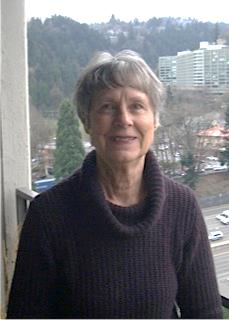

My journey began in November 2002 with four words, “You have ovarian cancer.” My life was no longer on an even keel; it was heading in an unknown direction. How could this happen to me, a registered nurse working in hospice?
I went for yearly checkups, PAP smears, mammograms, occult blood tests for colon cancer. No one ever mentioned ovarian cancer. It wasn’t on my radar. I had taken care of a few women with ovarian cancer in my work as a hospice nurse, but I didn’t have much understanding of its nefarious ways.
Several months prior to diagnosis, I had been feeling funky, with occasional stomach queasiness, and a slight rounding of my tummy. As time went by, I noticed that I felt like I had to urinate often; I had feelings of pressure, but no pain or burning as I would have had with a urinary infection.
At that time, I was already scheduled for my routine gynecological checkup as well as a physical with my primary care physician. During the exam, the doctor mentioned that my uterus appeared somewhat pushed to the side and he felt what might be fibroids. An ultra sound was scheduled for the next day, and blood work ordered.
Two days later, and after a CT scan, I found myself meeting with a gynecological oncologist. My primary care physician had initially contacted a gynecologist, who said I needed to be referred to a gynecological oncologist.) I have since learned that seeing this type of specialist is very important.
Next it was on to the clinic for prep-op blood work, a chest x-ray and a cardiogram. Then, I was off to the pharmacy for two bottles of magnesium citrate for my bowel prep. Less than 48 hours later, I awakened in a hospital bed with A DIAGNOSIS OF STAGE IIIC ovarian cancer, with optimal debulking. Much later, I learned that the term “optimal debulking” was the best news I could have heard.
To ready my body for chemotherapy, a port was inserted so that I could receive the treatment I needed to combat this disease that had invaded my body. The plan was to have six chemotherapy treatments of Carboplatin & Taxol followed by 12 treatments of consolidated Taxol.
I began reading all that I could find about ovarian cancer. No, I did not turn to the internet, but instead I turned to medical books. Also I looked into complementary therapies. I used acupuncture to help control the nausea and to help stimulate my immune system. I utilized an aromatherapy massage therapist. Together we researched essential oils that had shown to be of some help in shrinking tumors, bolstering the immune system, and helping relax and combat depression. I continued with my Tai Chi practice and started to practice Soaring Crane Qi Gong, a gentle healing Chinese movement developed by a Chinese physician who was a breast cancer survivor. I feel strongly that using these different therapies along with traditional western medicine was the right move for me.
My family, friends and co-workers formed my support group. Prayer groups (to which my friends back east belonged to) went into action. One friend sent me a silly item every time I had chemotherapy. One of my daughter’s friends drove me to chemo as she had moved to Denver (where we were living at the time of treatment) a few months prior to my diagnosis. This allowed my husband to continue working and to pick me up from chemo at the end of the day.
My supervisor from hospice walked over to the chemo center from her office to spend time with me during treatment. She also revamped my job so that I could return to work after my first six treatments were finished. Other co-workers came to my home and took me out in between treatments to help keep my spirits up. Most important was the love and help of my husband and three children.
Six years after my initial diagnosis in 2002, ovarian cancer reared its ugly head and returned again. This time it was an encapsulated tumor in the front of my left kidney. I endured surgery and another six rounds of chemotherapy with Carboplatin and Taxol.
Since my recurrence, I have retired from work. I have my CA125 drawn every three months as the CA125 blood test turned out to be a good marker for me. I have had genetic testing done that shows that I do not have the BRCA1 or BRCA2 mutations.
I do, however, have a positive pathogenic recessive gene that increases my risk of colon cancer by 80%. It also increases my risk of ovarian cancer, but none of my physicians is able to say that this gene is responsible for my cancer, a legacy I wish I wasn’t leaving to my daughters and granddaughters.
For me, ovarian cancer has become a part of my life. It is there but it does not rule who I am or prevent me from leading a happy life.
